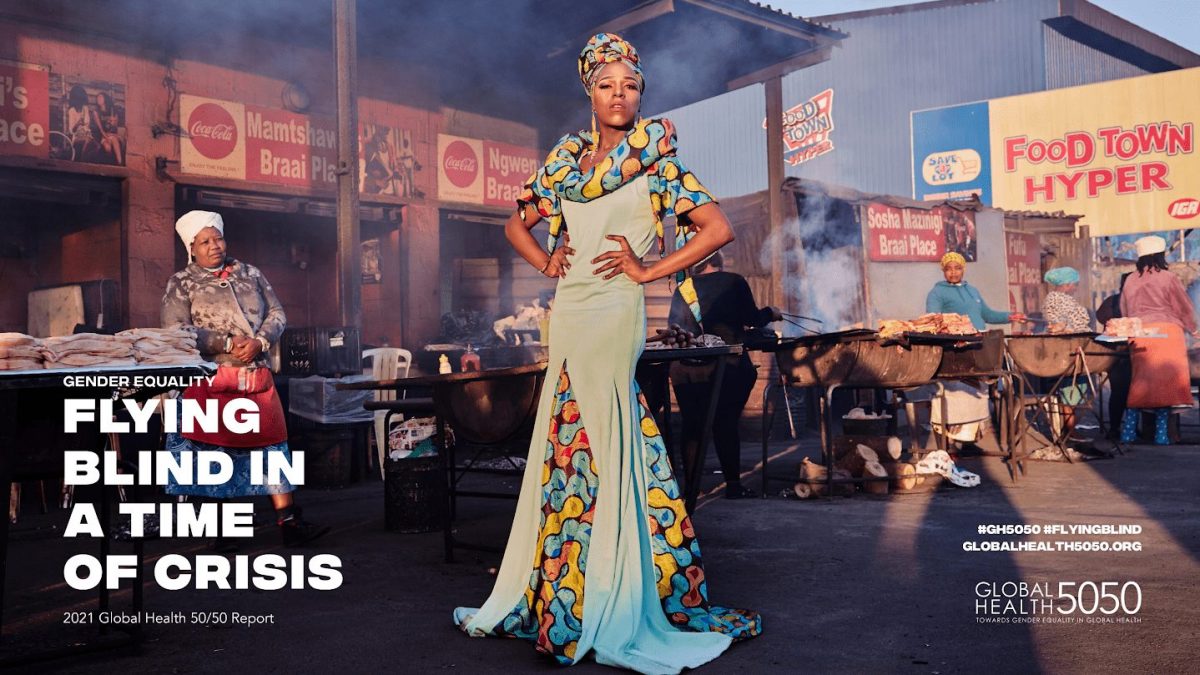- 021 423 7088
- info@genderjustice.org.za
- Whistleblower: 0800 333 059

The 2021 Global Health 50/50 report, “Gender equality: Flying blind in a time of crisis,” reviews the gender-related policies and practices of 201 global organisations active in global health.
Against the backdrop of a calamitous 2020, the report finds notable areas of progress and hope. The new data and research show that organisational commitment to gender equality is surging, and that organisations are becoming more transparent about their policies on shaping diverse, inclusive and equitable working environments for people.
The latest data also suggest, however, that rhetoric is often used as a substitute for action. The report reveals that the vast majority of programmatic activity to prevent and address the health impacts of COVID-19 largely ignores the role of gender. Evidence gathered by the GH5050 collective of researchers, strategists and practitioners shows that gender influences everything from who gets tested for COVID-19 to risk of severe disease and death. Yet, in a male-default world, the report finds that gender as a driver of everyone’s health, including that of men and boys, remainsunder-appreciated, under-counted and under-addressed. The result is gender-blind pandemic responses that are less effective than they should be, with grave consequences for the health of people around the world.
The year 2020 marked the 25th anniversary of the Beijing Declaration and Platform for Action, a global blueprint for gender equality and women’s rights. This year, however, sees the appointment of yet another cohort of mostly male global health leaders, predominantly from high-income countries, with the mandate to exert influence over the health and wellbeing of people worldwide. Despite substantial rhetoric, the data reveals little progress towards gender equality and diversity in leadership across the health sector and a widening gender pay gap.
In the face of multiple global crises, a global health system dominated by individuals and institutions in high-income countries forgoes essential talent, knowledge and expertise, with serious implications for pandemic preparedness, progress on Universal Health Coverage and meeting the health-related targets of the Sustainable Development Goals.

Sonke is a South African-based non-profit organisation working throughout Africa. We believe women and men, girls and boys can work together to resist patriarchy, advocate for gender justice and achieve gender transformation.
Please note that Sonke does not offer counselling or other support services to individuals. Click here for information on where to get help.
Sign up for the Sonke e-Newsletter to receive social justice news and views in your inbox.
Please see our Privacy Policy here.